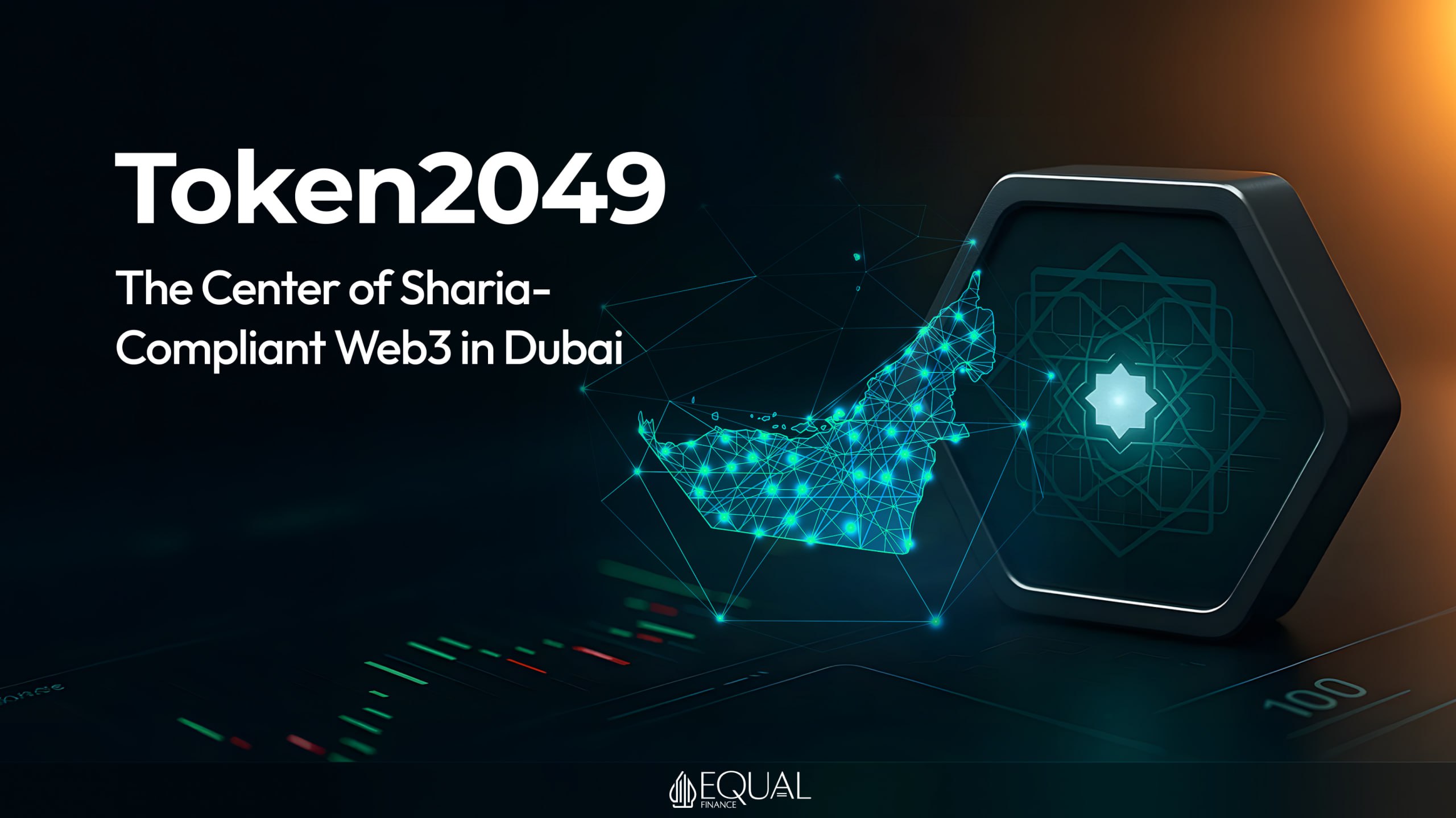TOKEN2049 Dubai 2025, held on April 30–May 1 at Madinat Jumeirah, gathered 15,000 attendees from 4,000+ companies across 160+ countries. The event featured 200+ speakers, including Binance CEO Richard Teng and Circle CEO Jeremy Allaire, discussing blockchain’s future. TOKEN2049 Week (April 28–May 4) hosted 500+ side events, from hackathons to yacht parties, making Dubai a Web3 hub. Attendees experienced NFT exhibitions, VR demos, and live music, blending innovation with hospitality. Dubai’s tax exemptions for crypto operations reinforced its leadership in digital finance. The conference spotlighted the integration of Islamic finance with Web3, a key focus for the UAE. TOKEN2049 highlighted the region’s potential in Shariah-compliant digital finance.
The UAE, a global leader in Islamic banking with $620 billion in assets as of 2024, uses blockchain to advance its financial sector. Islamic finance, based on Shariah principles like banning interest (riba) and speculative risk (gharar), aligned with TOKEN2049’s themes. The event focused on tokenizing tangible assets, a core aspect of Islamic finance. Panels explored how DeFi can meet Shariah requirements, avoiding interest-based models. Dubai’s Blockchain Strategy supports this integration, ensuring transaction transparency. TOKEN2049 showcased the UAE’s role in shaping Shariah-compliant digital finance trends.
Shariah-Compliant DeFi: Innovations at TOKEN2049
Shariah-compliant DeFi took center stage at TOKEN2049 Dubai 2025, reflecting the UAE’s goal to merge Islamic finance with blockchain. Experts discussed DeFi protocols using profit-sharing models like Mudarabah and Musharakah, avoiding interest. A panel with Dr. Khalid Ahmed from Dubai Islamic Bank showcased smart contracts automating Shariah-compliant transactions. A Dubai startup presented a DeFi platform excluding interest, gaining investor attention. Chainlink oracles ensured transparency by providing asset value data. The UAE’s Vision 2030 prioritizes digitizing finance, with Shariah-compliant DeFi at the forefront. TOKEN2049 demonstrated the global scalability of these solutions.
An Abu Dhabi fintech launched a tokenized sukuk platform, raising $8 million during TOKEN2049 Week. Investors bought sukuk shares, earning returns through profit-sharing, adhering to Shariah. The DIFC’s sandbox enabled testing of this blockchain solution. Shariah-compliant DeFi also promotes financial inclusion, supporting SMEs in underserved regions. An Al Ain startup’s DeFi platform funded eco-friendly projects, boosting farmers’ income by 18%. TOKEN2049 solidified Dubai’s leadership in this innovative space.
Tokenization in Islamic Finance: New Horizons
Tokenization of Islamic assets was a key topic at TOKEN2049 Dubai 2025, supporting the UAE’s goal to tokenize $500 million in assets by 2027. Assets like sukuk, real estate, and commodities can be tokenized while adhering to Shariah. A Dubai Blockchain Centre event showcased a platform where investors bought property shares from $4,000, earning profit-sharing returns. Smart contracts ensured transparent profit distribution, aligning with Islamic principles. Blockchain cuts out intermediaries, reducing transaction costs. TOKEN2049 highlighted how tokenization opens new opportunities for Islamic investors.
Tokenization also enhances Islamic philanthropy. A Sharjah startup tokenized Waqf assets, raising $1.5 million for cultural restoration in the UAE. Smart contracts automated Zakat calculations, ensuring Shariah compliance. Emirates Islamic Bank announced a tokenized sukuk platform for 2026, targeting $80 million in investments. Blockchain builds trust in these transactions, crucial for Islamic finance. TOKEN2049 confirmed the UAE’s leadership in modernizing Islamic financial tools.
AI and Blockchain in Islamic Finance: Breakthrough Solutions
AI and blockchain synergy in Islamic finance was a major theme at TOKEN2049 Dubai 2025. AI analyzes data for ethical investments, avoiding prohibited sectors like gambling. An AI system for Shariah-compliant portfolios, presented at the event, used blockchain for compliance verification. A Dubai firm showed how AI detects non-compliant transactions, saving banks $400 million annually. The UAE aims to attract 500+ startups by 2026, many focusing on Islamic finance tech. TOKEN2049 showcased how these technologies enhance Islamic financial services.
Blockchain ensures transparency in AI-driven Islamic finance systems. A platform verifying halal goods in supply chains cut certification costs by 20%. AI also improves risk management, predicting market shifts while maintaining Shariah compliance. A Dubai Islamic bank increased Shariah-compliant loan approvals by 12% using AI and blockchain. Global Islamic banks showed interest in these solutions. TOKEN2049 positioned the UAE as a hub for such innovations.
TOKEN2049: The Future of Islamic Finance in Web3
TOKEN2049 Dubai 2025 brought together the global crypto community, with Islamic finance playing a key role. Speakers like Tether CEO Paolo Ardoino highlighted blockchain’s role in ethical finance. The event’s 500+ side events, including a hackathon with 50 prototypes, drove innovation. Dubai’s timezone and regulatory clarity make it a Web3 leader. The UAE sets trends in integrating Islamic finance with blockchain. TOKEN2049 inspired new Shariah-compliant digital finance solutions. It reinforced the region’s pioneering role in this space.


